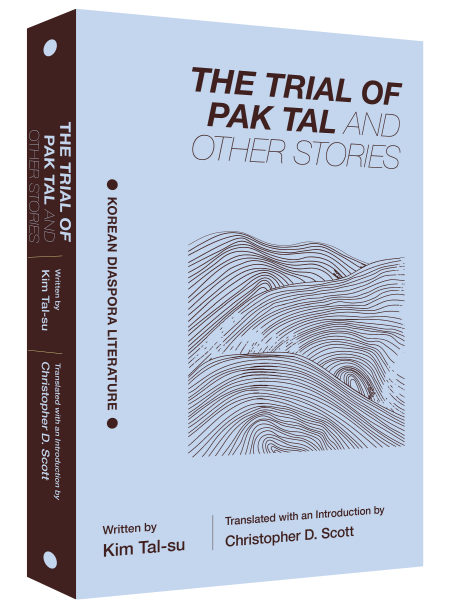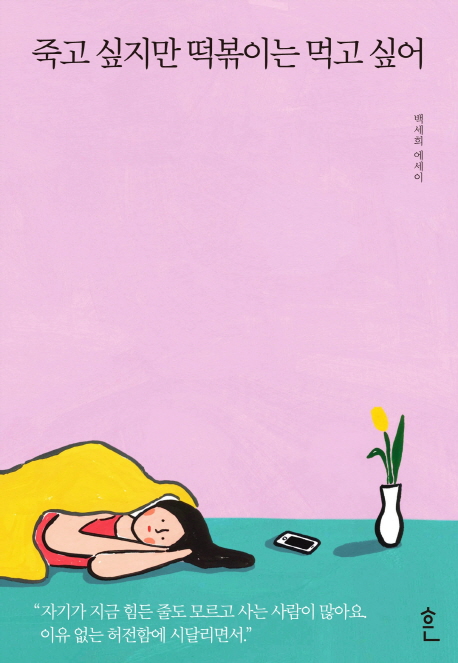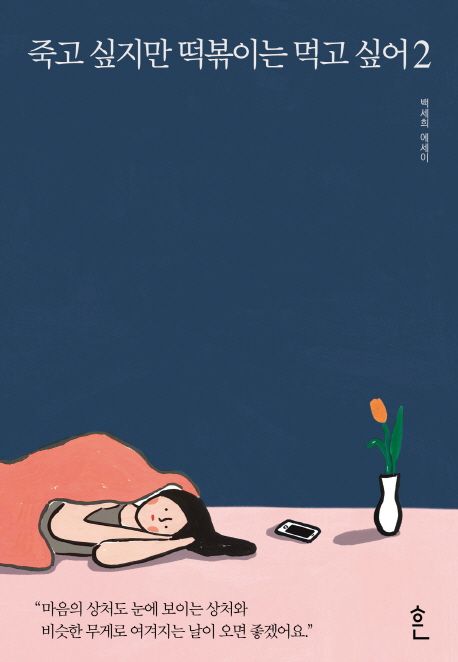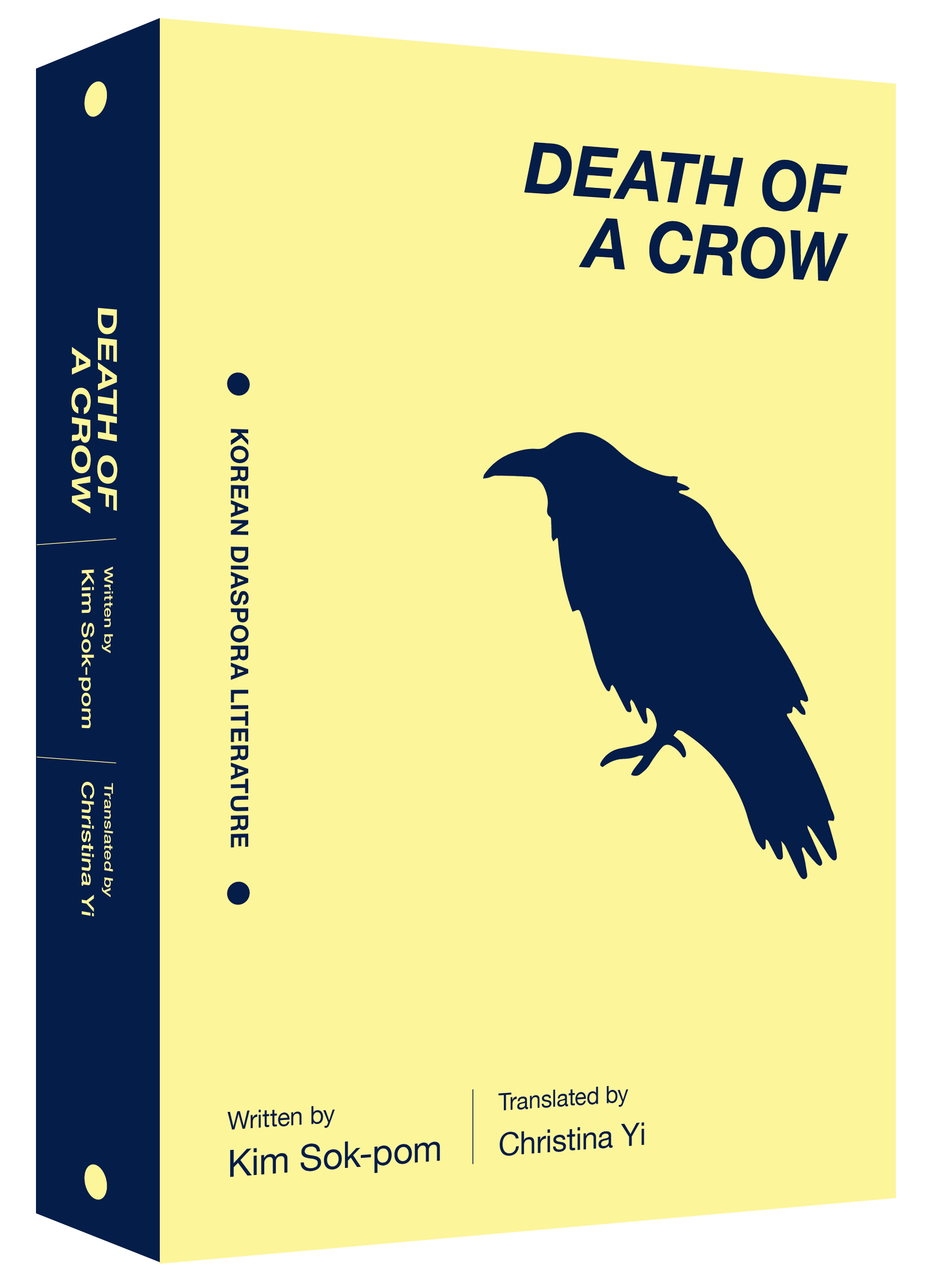Kim Tal-su
Kim Tal-su: The Trial of Tak Pal And Other Stories Korean Diaspora Literature
34,90 €*
-
Art.Nr./ISBN: 9781624121487
-
Verlag: Seoul Selection
-
Seitenzahl: 350
-
Einband: Softcover
-
Jahr: 2022
-
Sprache: English
-
Medientyp: Book
-
Autor: Kim Tal-su
Auf Lager. Versandfertig in 1-3 Werktagen
Produktinformationen "Kim Tal-su: The Trial of Tak Pal And Other Stories"
Kim Tal-su (1920–1997) was one of the first and leading writers of the Korean Diaspora in 20th-century Japan. The stories in this collection include the critically acclaimed novella “The Trial of Pak Tal” and cover a range of periods and topics like the struggles of Koreans in wartime Japan, the Korean War and its aftermath, and the layers of Japanese and Korean history on the island of Tsushima. Full of the writer’s unique blend of humor and pathos, these stories offer a moving and multifaceted look at how Koreans fought to find their voice and identity in Japanese culture and society.
Publisher’s Review
The so-called Zainichi Korean diaspora in Japan is a large and diverse community with a long and painful history that began with the Japanese colonization of Korea (1910-1945). One of the most prolific and influential Zainichi Korean writers in Japan, Kim Tal-su (1920-1997) left behind a wide body of work depicting the many social and psychological dilemmas that Zainichi Koreans face, such as passing and outing, racism and discrimination, and ethnic identity and political affiliation. This collection, which contains some of Kim’s most important shorter works, showcases his vitality and versatility as a writer. Together, these stories offer new perspectives on Zainichi Korean identity and agency and new horizons for rethinking Japanese and Korean history beyond the borders of the nation-state.
Beginning with “Kindred Spirits,” a lively look at Koreans passing as Japanese and trespassing as bootleggers in wartime Japan, this collection includes the critically acclaimed novella “The Trial of Pak Tal,” a political satire about the Korean War (and the war within the Zainichi Korean self) through the eyes of a farmhand-turned-freedom fighter named Pak Tal and an equally sly and subversive narrator, and the historical travelogue “All the Way to Tsushima,” which follows Kim and his compatriots to the island of Tsushima, located between Japan and Korea, on a sentimental search for their lost homeland. The collection ends with two of Kim’s earliest works, “One’s Place” and “Memories of My Grandmother,” which explore the place of Zainichi Koreans in Japanese society and their lingering sense of loss and displacement.
Sensitively and skillfully translated from the Japanese by Christopher D. Scott, with a detailed introduction to Kim’s life and literary career, “The Trial of Pak Tal and Other Stories” is a revolutionary work of Zainichi Korean literature and a landmark of Korean diasporic literature. Bridging the histories of Japan, the Korean Peninsula, and the United States—much like Min Jin Lee’s 2017 bestselling novel Pachinko—this collection brings long overdue recognition to a community that, as Lee writes at the opening of her novel, “history has failed.” As this translation shows, however, history has not failed Kim; it has redeemed him. Like Pak Tal in “The Trial of Pak Tal,” Kim has come back, albeit in English this time. And he has some unforgettable stories to tell.
About the Author
Kim Tal-su
A leading Zainichi (ethnic Korean residing in Japan) writer whose fiction charted the inner lives of Koreans during and after the Japanese occupation, Kim was born in Changwon, Gyeongsangnam-do, in 1920 and immigrated to Japan at age 10 along with family. He attended elementary school there but dropped out after being bullied by his Japanese classmates. Undaunted, he began learning Japanese and reading Japanese literature while performing menial jobs like factory worker, public bath attendant, and garbage collector. After graduating from Nihon University College of Art, he began working in 1943 as a reporter for the daily Gyeongseong Ilbo (Keijō Nippō) in Seoul.
In 1947, Kim published his first novel Kōei no machi (City of Descendants). His works were hailed for eloquently and evocatively capturing the dilemmas faced by Koreans under Japanese colonial rule and the subsequent sorrow and resentment felt by his compatriots. His other major works include the novel Genkai nada (The Genkai Sea, 1953), the novella “The Trial of Pak Tal” (1958), and the 12-volume Nihon no naka no Chōsen bunka (Korean Culture in Japan, 1970–1991), which focuses on ancient relations between Korea and Japan.
About the Translator
Christopher D. Scott teaches Japanese and Japanese culture at The Nueva School in San Mateo, California. He received his bachelor’s degree from Princeton University and his master’s and PhD from Stanford University. His other published translations from Japanese to English include Kim Sa-ryang’s “Into the Light,” Levy Hideo’s A Room Where the Star-Spangled Banner Cannot Be Heard, and Shu Ejima’s Quick Draw.
Contents
Acknowledgments
A Note on Names and Romanization
Translator’s Introduction
Kindred Spirits
The Trial of Pak Tal
All the Way to Tsushima
One's Places
Memories of My Grandmother
Anmelden






